Even if the bathroom at home is classed as unisex, our attitudes change when it comes to using a public bathroom that is open to men and women. Both sexes from the US, UK and France have expressed their discomfort at the thought of using a unisex toilet – with British women being most likely to find sharing unappealing.
Men are less phased by unisex bathrooms in each of our countries – the biggest gender gap was in Britain, where 56% of women said they are NOT comfortable with the thought of using a unisex toilet, but just 27% of men.
French women are the females least likely to feel uncomfortable sharing with the other sex – 40% said they are comfortable with using a unisex toilet in public, 38% of American and British women agreed.
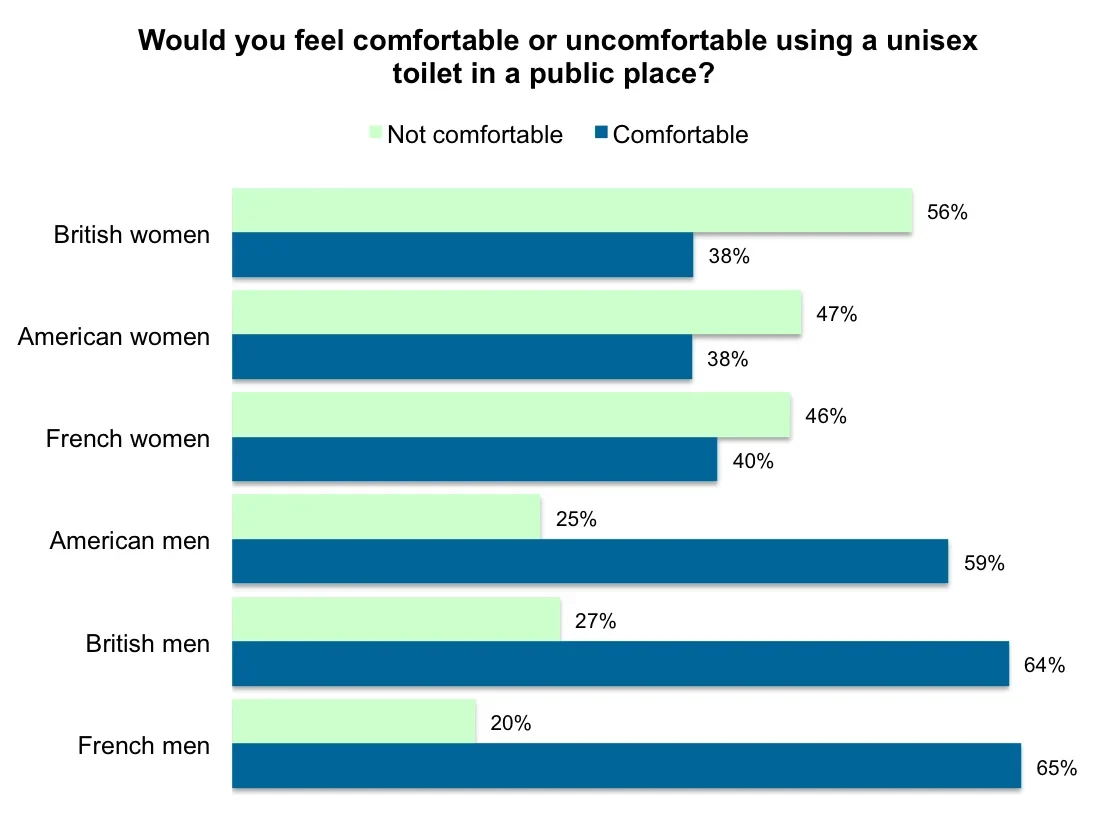
Considerably more Americans and British people said they have used a unisex bathroom than those who indicated they were comfortable with using one – suggesting that many found the experience of using unisex facilities off-putting. In France – where 52% of the population has used a unisex toilet – an equal proportion (52%) said they were perfectly comfortable to use one.
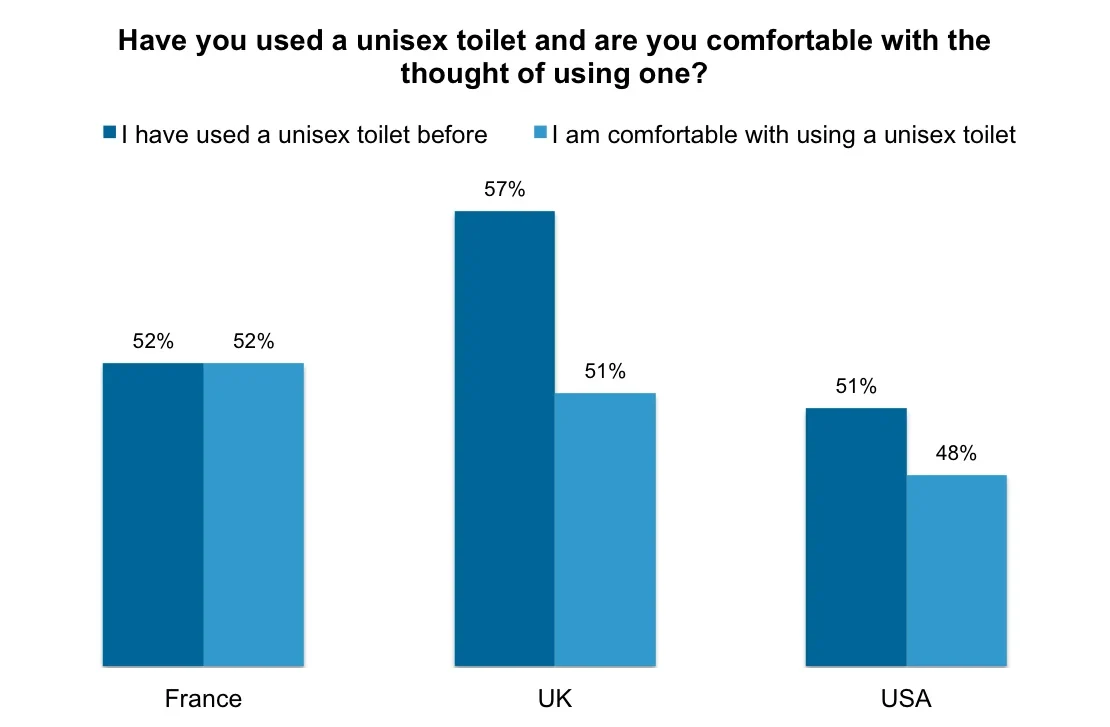
More cash, less fuss in US
Higher earners in America tend to be more accepting of using unisex toilets. 64% of Americans earning $80,000 or more in a year said they are comfortable with the thought of using a unisex facility, but just 43% of people earning less than $40,000 agreed.
Lower earners are also less likely to have used a unisex toilet – 39% earning less than $40,000 had used one, 56% of middle earners taking home between $40,000 and $80,000 and 66% of those earning $80,000 or more.
The gender-neutral toilet is a contentious issue in the US, with some transgender Americans arguing unisex toilets could prevent embarrassment or even confrontation resulting from them using a sex-designated toilet. The campaign group ‘People In Search of Safe and Accessible Rooms’ aims to promote gender-neutral bathrooms, while online searches like safe2pee.org let people search for gender-neutral bathrooms in their area.
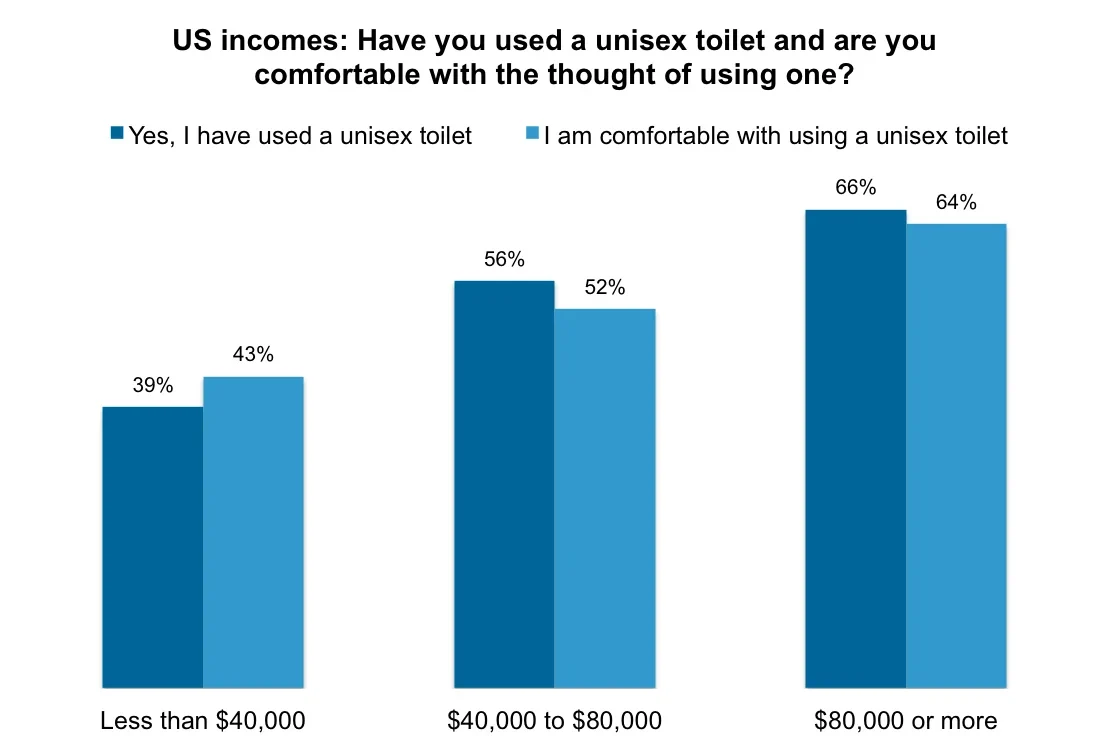
Older in France more comfortable
The older generation tends to be more open to the idea of unisex toilets in France. Among French people aged 55 and over, 57% said they were comfortable to use a unisex toilet, but only 46% of French people aged 18-34 said the same.
Your likelihood of having used a unisex toilet also increases with age in France – 51% of 18-34s and 55% aged 55 and over indicated they had used a gender-neutral toilet in a public place.
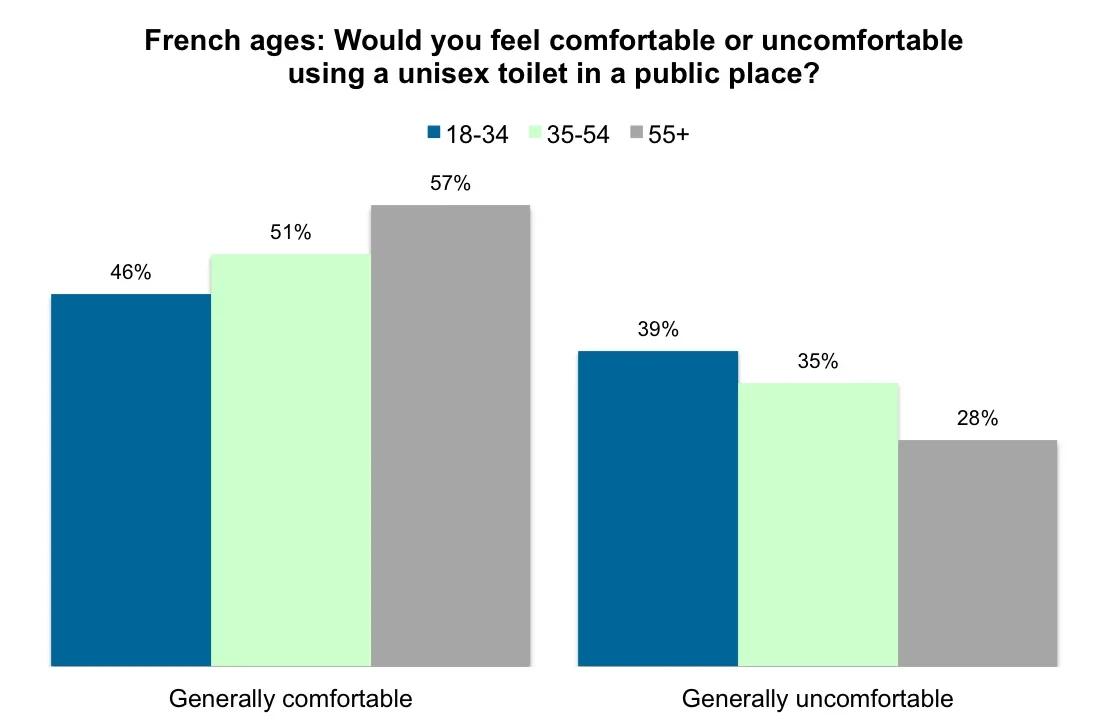
Older Brits bashful over unisex 'loos'
In the opposite direction to France, the age trend in the UK suggests younger people are more comfortable with the thought of using a unisex toilet. 64% of 18-24 year olds in the UK would be comfortable using a gender-neutral toilet, but only 46% aged 60 and over.
Less than a quarter (23%) of 18-24 year olds said they would not be comfortable using a unisex toilet, far less then the proportion of 25-39 year olds (39%), 40-59 year olds (46%) and people in their 60s and over (48%).
Perhaps the younger generation’s support for unisex facilities is down to a growing trend for the toilets in new offices and public lavatories. Some new office blocks in cities across the UK have included unisex bathrooms as a ‘trendy’ alternative to single-sex toilets, although this year a town council was forced to scrap the shared toilets after complaints by office staff.
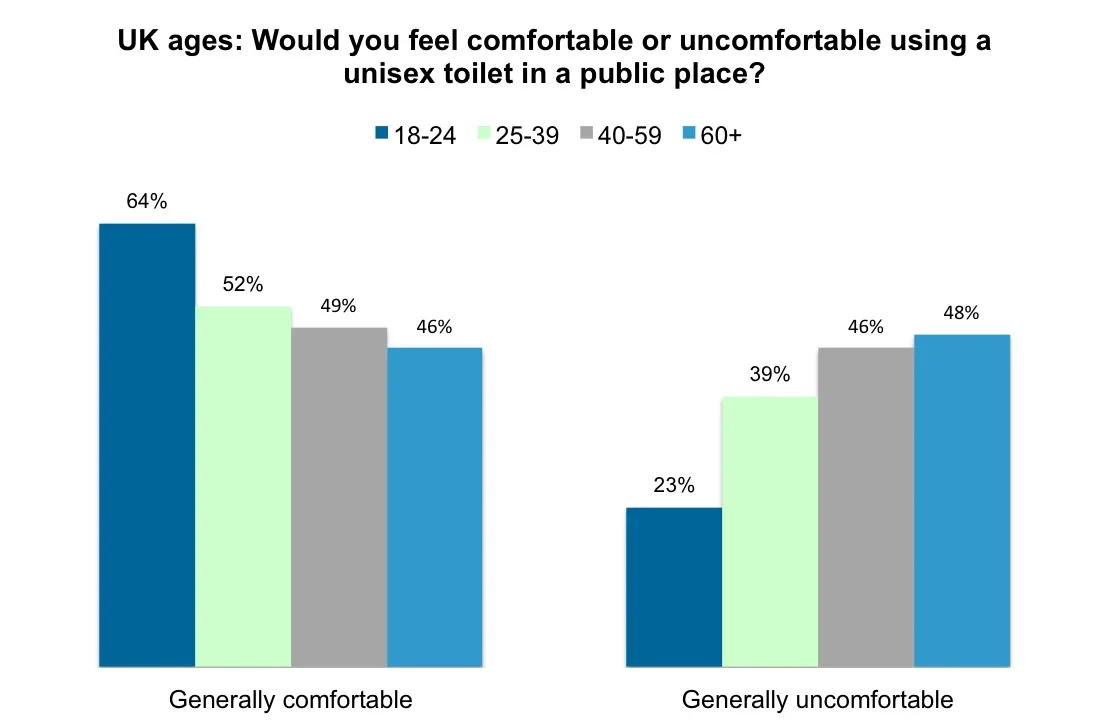
For further information about poll results, and for details about methodology and omnibus services, please email omnibus.us@yougov.com.
Find the full results here.







